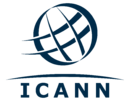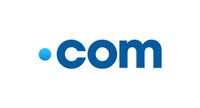Main Page: Difference between revisions
Weekly Article - ICANN Board |
New article of the week - UDRP |
||
| Line 20: | Line 20: | ||
<br /><div style="color: #FFF; background-color: #0d8323; padding: 5px 10px; border: 1px solid #466f81;"><big>Article of the Week</big></div><div style="padding: 10px;"> | <br /><div style="color: #FFF; background-color: #0d8323; padding: 5px 10px; border: 1px solid #466f81;"><big>Article of the Week</big></div><div style="padding: 10px;"> | ||
<big><b>[[ | <big><b>[[Uniform Domain Name Dispute Resolution Policy]]</b></big> | ||
<br /> | <br /> | ||
The [[ICANN | The [[Uniform Domain Name Dispute Resolution Policy]], or UDRP, is a set of guidelines used by [[ICANN]] to resolve disputes regarding the registration of [[Domain Name]]s. The UDRP was adopted on August 26th, 1999. Additionally, a set of Rules for Uniform Domain Name Dispute Resolution Policy (UDRP Rules) were approved by ICANN on October 30th, 2009, followed by Supplemental Rules for the Uniform Domain Name Dispute Resolution Policy, which entered into effect on December 14th, 2009. The UDRP are policies which apply in disputes between registrants and third parties as a result of the registration and use of domain names. Disputes under these policies may be filed with one of the approved dispute-resolution service providers for the given policy. The UDRP was created in order to protect recognized brands and trademarks from abusive registrations by third party registrants who intentionally register confusingly similar domain names in bad faith for profit. It is important to remember that the UDRP applies to all [[gTLD]]s and [[ccTLD]]s that voluntarily adopted the UDRP policy. | ||
<br /><br /> | <br /><br /> | ||
<strong>([[ | <strong>([[UDRP|Read the full article...]])</strong> | ||
<div style="float:right;"><small><strong>Related: [[ | <div style="float:right;"><small><strong>Related: [[WIPO]] - [[URS]] - [[Cybersquatting]]</strong></small></div><div style="clear: left;"></div></div> | ||
<br /><div style="color: #FFF; background-color: #466f81; padding: 5px 10px; border: 1px solid #0d8323;"><big>Latest Feature</big></div><div style="padding: 10px;"> | <br /><div style="color: #FFF; background-color: #466f81; padding: 5px 10px; border: 1px solid #0d8323;"><big>Latest Feature</big></div><div style="padding: 10px;"> | ||
Revision as of 19:02, 17 February 2014
Much thanks to our sponsors for all of their continued support!
Uniform Domain Name Dispute Resolution Policy
The Uniform Domain Name Dispute Resolution Policy, or UDRP, is a set of guidelines used by ICANN to resolve disputes regarding the registration of Domain Names. The UDRP was adopted on August 26th, 1999. Additionally, a set of Rules for Uniform Domain Name Dispute Resolution Policy (UDRP Rules) were approved by ICANN on October 30th, 2009, followed by Supplemental Rules for the Uniform Domain Name Dispute Resolution Policy, which entered into effect on December 14th, 2009. The UDRP are policies which apply in disputes between registrants and third parties as a result of the registration and use of domain names. Disputes under these policies may be filed with one of the approved dispute-resolution service providers for the given policy. The UDRP was created in order to protect recognized brands and trademarks from abusive registrations by third party registrants who intentionally register confusingly similar domain names in bad faith for profit. It is important to remember that the UDRP applies to all gTLDs and ccTLDs that voluntarily adopted the UDRP policy.
(Read the full article...)
.com
.com is one of the first TLDs to be used on the Internet's Domain Name System; it was originally intended for commercial purposes, though there are no current restrictions limiting it to commercial entities. It was introduced in 1985 by IANA, which is responsible for the overall coordination and management of the DNS; the organization was led by Jon Postel at the time. On January 28, 1986, the entities overseeing the DNS met and restructured its makeup to correspond to 8 TLDs, including .com, the others are: .gov (government), .edu (American higher education), .mil (American military), .org (organization), .int (international, specifically NATO relations), .net (sites related to the Internet itself), and .bitnet (computers on the BITNET network).
Explore the history of the world's most popular TLD with this article.
(Read the full article...)
- gTLD Auctions
- Closed gTLDs
- Sort All TLDs by Priority
- 了解ICANN 和 新gTLDs计划
(Chinese micro-site)









